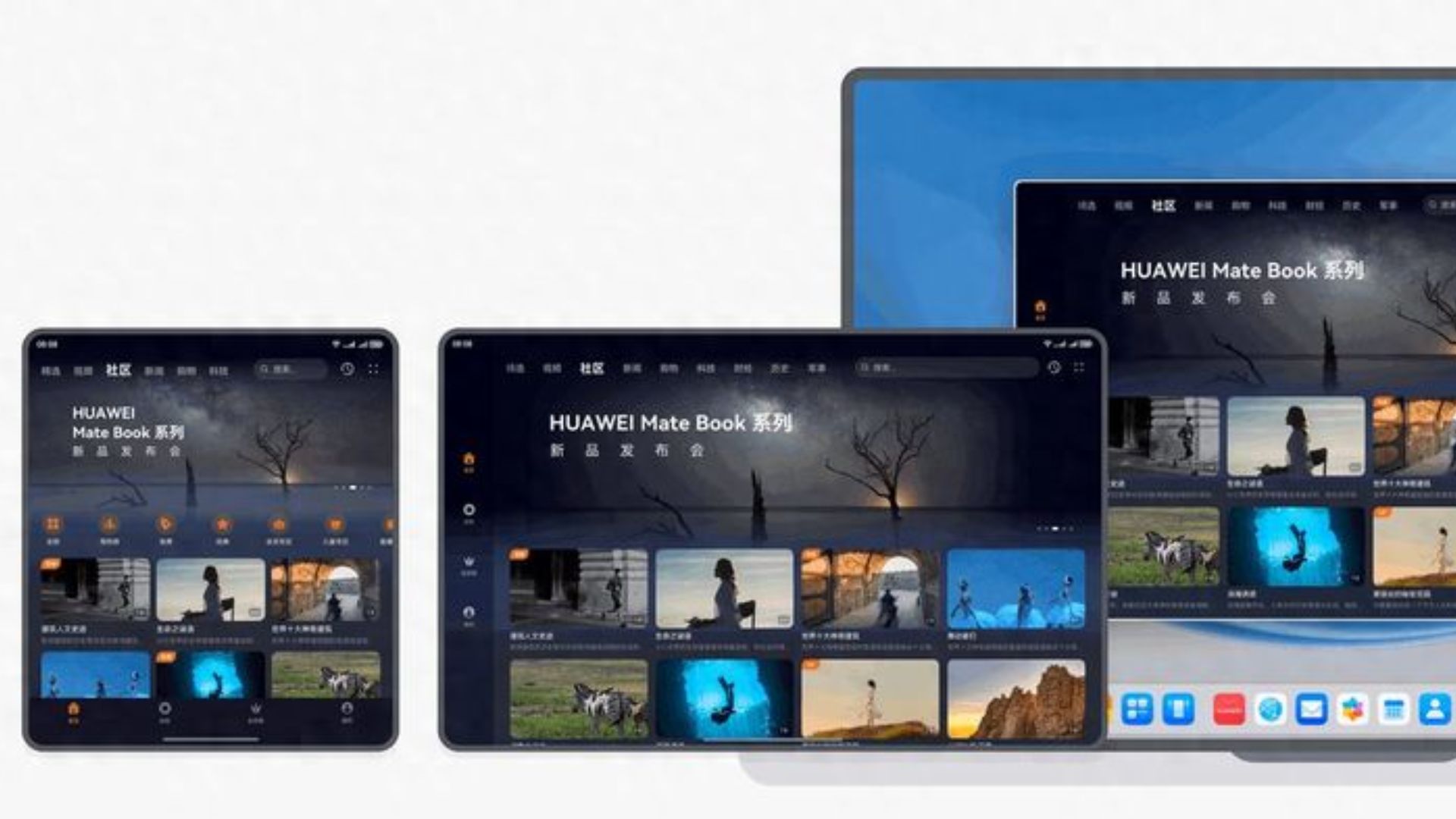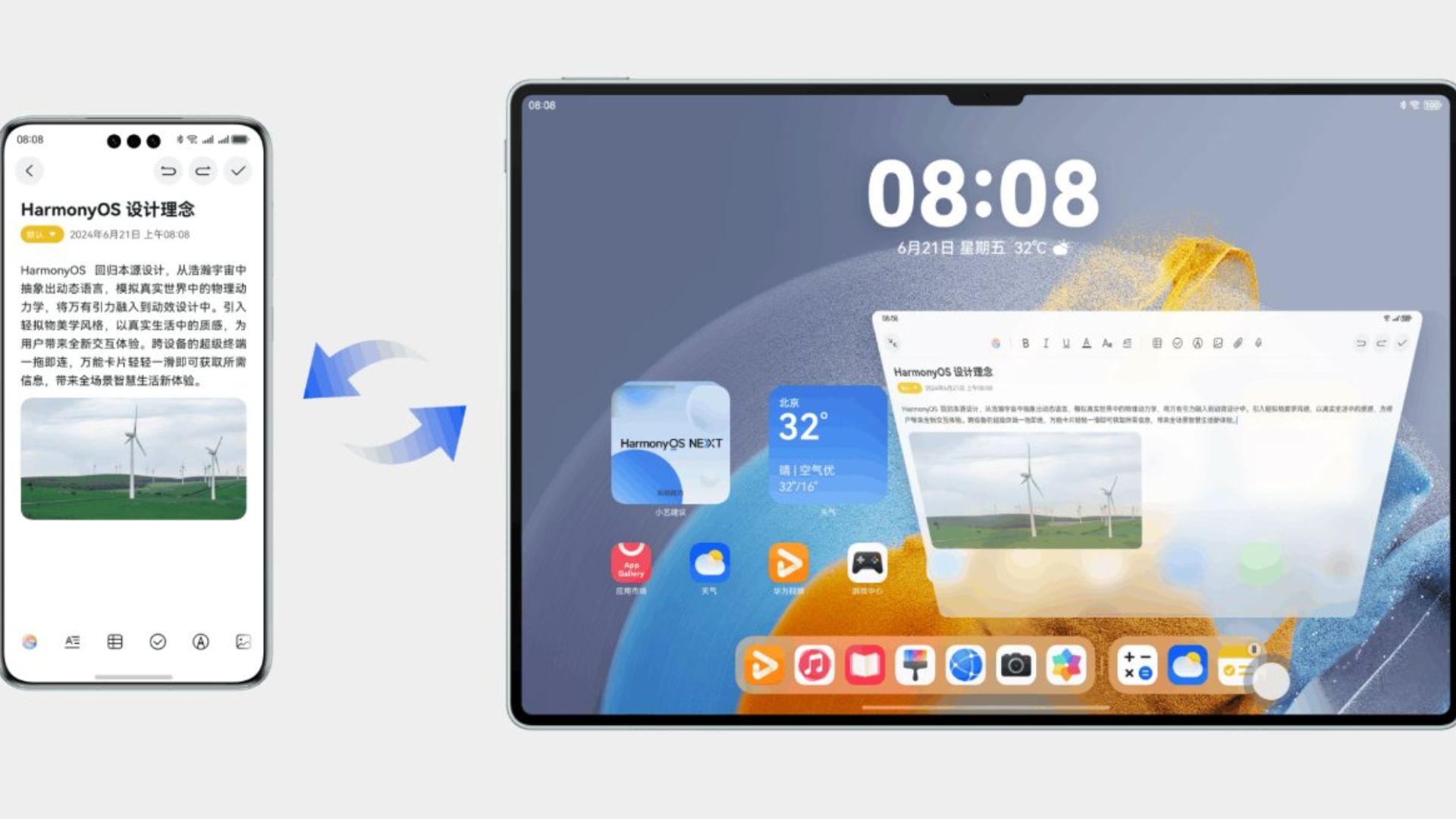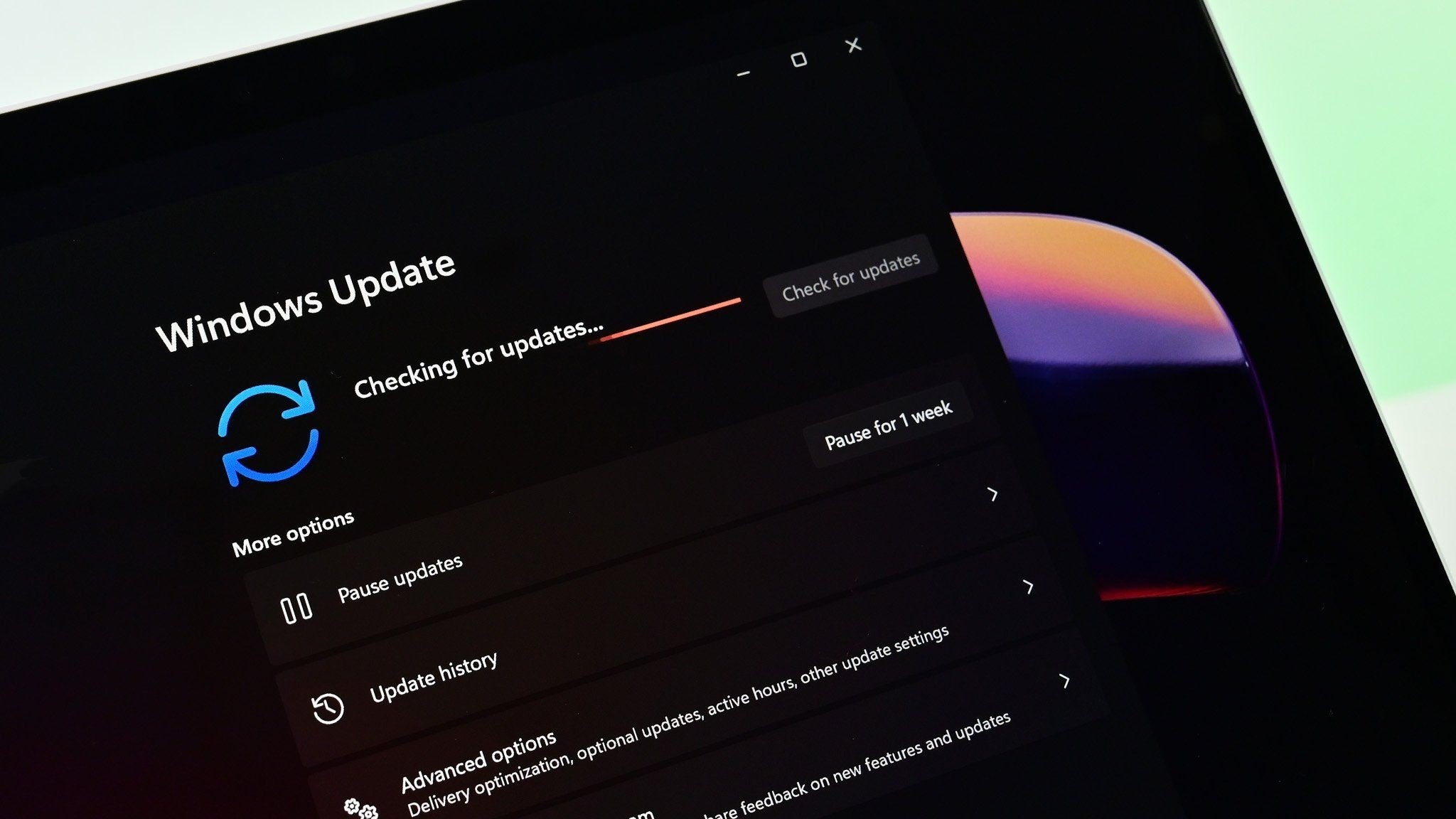
What you need to know
- Huawei will reportedly unveil a Windows competitor later this year.
- HarmonyOS Next emulates Apple's macOS style across its status and dock bar.
- The operating system is Android-free and uses its own microkernel.
If Microsoft won't give users what they want, Huawei may do so. While it might seem like a stretch, Huawei could potentially be on the verge of giving Microsoft's Windows operating system a run for its money.
Huawei might get back to developing its own operating system for PCs later this year. As you may know, Huawei is no stranger to the landscape since it has been developing HarmonyOS, which is used across its assorted devices, including smartwatches and smartphones (via Tom's Hardware).
According to HarmonyOS developer Jason Will on X (formerly Twitter):
"The increasing appearance of HarmonyOS PC version UI layouts on Huawei's developer website suggests that HarmonyOS Next for PC is definitely set to launch in Q4 this year."
The increasing appearance of HarmonyOS PC version UI layouts on Huawei's developer website suggests that HarmonyOS Next for PC is definitely set to launch in Q4 this year. pic.twitter.com/oEmRAsN0CCJuly 16, 2024
Huawei hasn't sailed smoothly in the category, especially after the US blocked access to its Windows and Android operating systems. This prompted the company to develop its own software that allows developers to make apps and distribute them across multiple products and devices.
Years ago, Huawei was one of the most interesting brands making cutting-edge Windows laptops and tablets with excellent displays, slim designs, and haptic touchpads that often made great options for those looking to switch from Apple (mostly because they look a lot like MacBooks, ahem).
Unlike HarmonyOS, which is based on the open-source version of Android (AOSP), the anticipated PC version of Huawei's operating system — HarmonyOS Next, is Android-free and fully dependent on its own microkernel. This means that Huawei is on the precipice of achieving total independence from US-based software since it will only support apps in its own native format.
Per the images shared, HarmonyOS Next looks pretty neat and has seemingly copied Apple's macOS style across its status bar and dock bar.

To this end, Huawei's HarmonyOS Next is available as a developer sandbox for developers to build and test native mobile apps. It's unclear when the company plans to ship it to its products.
HarmonyOS is open-source, which potentially leads to widespread adoption. It currently holds 16% of the Chinese phone market, with projections of exponential growth in the next few years.
Microsoft's shortcomings with Windows 11 could be Huawei's strength with HarmonyOS Next

While Microsoft's Windows service is arguably the most popular operating system, the company has seemingly failed to get users to upgrade from Windows 10 to Windows 11 (despite its big AI push).
As we all know, the tech giant is set to cut support for Windows 10 on October 14, 2025. In a perfect world, the apparent option for most users would be to upgrade to Windows 11. However, users have blatantly expressed their reluctance to upgrade to Windows 11, citing stringent hardware requirements and flawed design elements across the OS.
Microsoft is seemingly hell-bent on pushing shiny new features to Windows 11 instead of fixing some of the issues highlighted by users regarding the operating system's shortcomings. For instance, users have openly hated the Start menu, including former Windows experiences lead. The Redmond giant announced that it was slowing its role in shipping new Copilot experiences to Windows 11 to improve and enhance existing experiences based on feedback.
During its special Surface and Windows event, Microsoft unveiled a host of crazy Windows 11 AI features shipping exclusively to Copilot+ PCs, including the controversial recalled Windows Recall, Live Captions, and more. For some, this has further widened the system requirements for Windows 11, ultimately making upgrading even harder. Global PC shipments only recently started showing a subtle uptick, but projections suggest a 5% growth by 2025 as the economy stabilizes after the COVID-19 pandemic.
On the other hand, a Chinese-born PC operating system would likely only "succeed" in China as Western markets are increasingly skeptical of spyware making HarmonyOS Next, even if "open source," dead in the water in non-Chinese markets. From that point of view, Microsoft may lose some market share in China, but it will be safe for the rest of the world.





.jpg?w=600)

